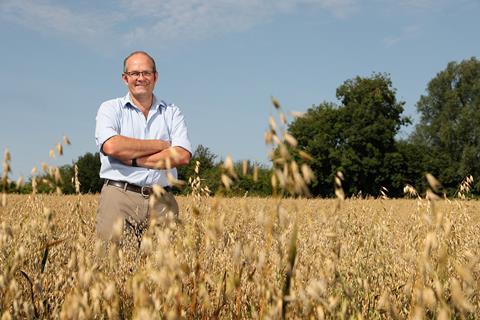The National Farmers’ Union (NFU) has called for UK self-sufficiency to be upheld “amidst global instability”.

NFU said that according to 2023 Defra figures, the UK is self-sufficient in food, and while this reflects “similar levels of the past decade”, some sectors have seen a recent decline.
It was highlighted by NFU that farmers and growers have experienced “one of the wettest winters and springs on record which has put untold pressure on food production”, while “record-breaking global temperatures” have impacted key exporting countries across the world.
Key asks of Government
Now, NFU said it is looking to work with new Government to put domestic food production “at the centre of its missions around climate resilience, economic growth and the nation’s health”.
NFU called for Government to ensure self-sufficiency doesn’t drop in the future by requesting it introduces a statutory commitment, while also providing an increased multi-year agriculture budget for the duration of this Parliament and ensuring all new agricultural policies undergo a food security impact assessment.
It also asked Government to ensure food imports are produced to the same standards as those that British farmers are required to meet and to introduce a target for half of all food purchased across the public sector to be locally produced or certified to higher environmental standards.
President of the NFU, Tom Bradshaw, said: “Food from other countries will always form a proportion of our daily diets, but we must recognise the vulnerability of global food supply chains and the importance of a stable food supply here at home to our nation’s health, as well as its vital contribution to our economy. Farmers produce the raw ingredients that underpin our food and drink sector, the largest manufacturing sector in the UK, worth £146 billion and employing more than four million people.
“That is why investment in Britain’s farming sector is so important, so where we can increase self-sufficiency in home-grown foods, we do.”
“Food producing businesses need the right policy framework and investment to boost confidence and resilience.”
Tom Bradshaw, NFU president
Bradshaw said: “Think about the impact of the climate crisis right across the world. Blistering temperatures have caused issues with harvests across Europe, while here in the UK many farms spent the first few months of this year under water. At the same time, our farmers continue to face significant reductions in direct farm support payments and un-sustainably high production costs due to the war in Ukraine.
“All of this chips away at business confidence and farmers’ ability to do what they do best – produce high quality, nutritious food for the nation. And with nearly a fifth of UK households reporting experiences of moderate or severe food insecurity in January 2023, we can’t afford to let this trend take hold.
“That’s why we welcome the Government’s recognition that food security is critical to national security. If we are to maintain, and where possible grow, our self-sufficiency in the face of global instability, food producing businesses need the right policy framework and investment to boost confidence and resilience so we can withstand climate and economic shocks.
“Central to this is an increased multi-year agriculture budget and a statutory commitment to ensure the UK’s self-sufficiency does not drop below its current level.
“We want to highlight the importance of boosting Britain’s ability to produce its own food so families across the country continue to have access to healthy, balanced and affordable meals – something we all have a right to.”















